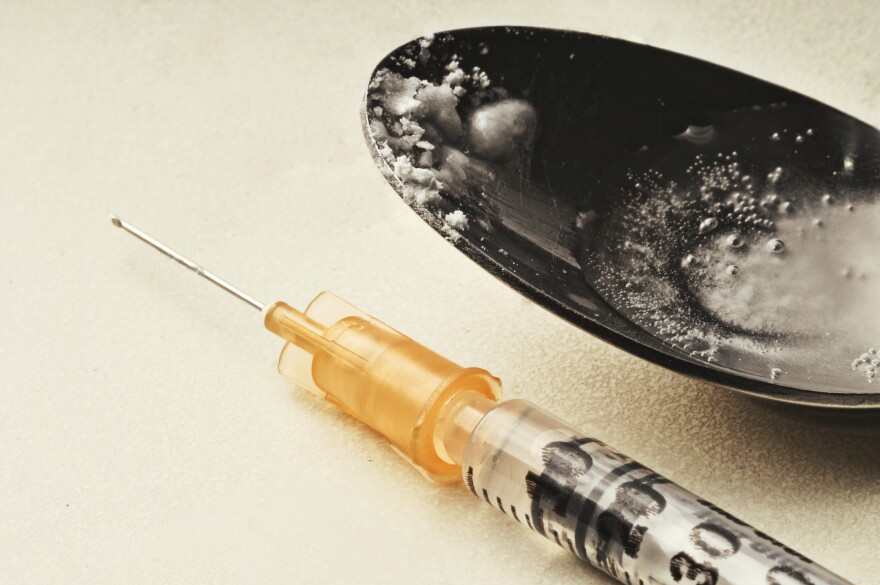On Wednesday night, city leaders will hold a meeting on the west side for people concerned about heroin's grip.
Wisconsin has been bolstering its fight against heroin. State leaders this year approved more than a half dozen new laws. One allows drug users to call 911 to report heroin overdoses without fear of prosecution; another expands treatment options.
While suburban and rural communities struggle with a rising number of overdose deaths, the city of Milwaukee has problems too. On Wednesday night, city leaders will hold a meeting on the west side for people concerned about heroin’s grip.
Milwaukee County saw a dramatic increase in heroin deaths in 2013. The number was 67 compared to 50 the previous year. Milwaukee Common Council President Michael Murphy calls heroin the number one problem facing the community.
“Unfortunately I have heard from too many parents and family members, not directly in my family, but certainly family members who’ve called my from my own district who’ve lost children or parents because of this devastating scourge of heroin addiction,” Murphy says.
Murphy will host Wednesday night's meeting at the MPS Administration Building. It will seek solutions to the problem. He praises law enforcement for recently breaking up a major heroin ring in Milwaukee; officers arrested more than 50 people.
Milwaukee Fire Capt. Michael Wright has seen the staggering numbers of victims. He says just this year, his department has responded to more than 900 calls for drug overdoses – many for heroin. Wright says first responders use a breathing apparatus to help revive people.
“It goes over their mouth and their nose and there’s a bag that holds about a liter or so of oxygen or air in it. When we’re squeezing the bag, it’s forcibly ventilating, pushing air into the person’s lungs and then letting them exhale and we’re doing that in conjunction with administering high flow oxygen to keep their vital organs and their brain oxygenated until we get the Narcan on board,” Wright says.
Narcan is the drug that helps jumpstart a person’s lungs. It has saved lives. Wright says first responders now carry Narcan so they can administer it to people who overdose.
Heroin has been around a long time according to Milwaukee Health Commissioner Bevan Baker. But he says its use has spiked in recent years because of the prevalence of prescription drugs. People can become addicted to the ones that are opiate-based, and they can lead to heroin, because it’s cheaper.
“What we see now in terms of opioid and heroin addiction is a public health crisis on par with polio of the past. If we don’t address this now with resolve and understanding, this outbreak is going to move into an area that will have great concern for generations to come,” Baker says.
Baker says community meetings such as the one planned for tonight, keep the problem in public view.



